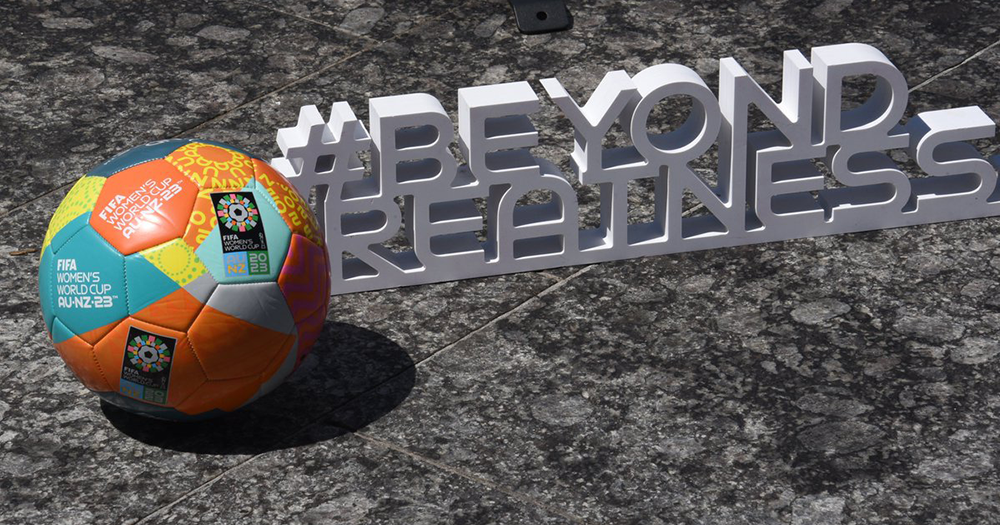On Monday, January 30, reports emerged that Visit Saudi, Saudi Arabia’s official tourism board, is expected to sponsor this year’s FIFA Women’s World Cup. The news has sparked widespread backlash, largely due to the host country’s track record of human rights abuses.
Both Football Australia (FA) and New Zealand Football, the combined hosts of the 2023 tournament, expressed disappointment over the alleged decision, adding that they have written to the governing body seeking urgent clarification.
“We are very disappointed that Football Australia were not consulted on this matter prior to any decision being made,” FA said in a statement on Wednesday, February 1. New Zealand Football added separately, “If these reports prove correct, we are shocked and disappointed to hear this as New Zealand Football haven’t been consulted by Fifa at all on this matter.”
Human rights advocates have condemned the rumoured partnership, with Human Rights Watch’s Director of Global Initiatives, Minky Worden, saying: “It is a shocking disregard of the suffering and ongoing repression of courageous women’s rights defenders in Saudi Arabia”.
Worden added, “It is worth remembering that, as recently as 2018, women and girls in Saudi Arabia were not allowed to play sport in schools – or even to watch sports in stadiums.
“Instead of sports-washing with sponsorships to attempt to rehabilitate its global image, it would be far better for Saudi Arabia to undertake fundamental human rights reforms, including to uphold basic rights for women and girls.”
?? @FAIreland are heading to the #FIFAWWC!
A historic FIRST-EVER appearance for The Girls in Green! ?#BeyondGreatness pic.twitter.com/2D6WJAQAkW
— FIFA Women's World Cup (@FIFAWWC) October 11, 2022
Amnesty Australia campaigner Nikita White similarly stated, “It would be quite the irony for Saudi’s tourism body to sponsor the largest celebration of women’s sport in the world when you consider that, as a woman in Saudi Arabia, you can’t even have a job without the permission of your male guardians.”
Additionally, Director of the Australian Human Rights Institute, Prof Justine Nolan, criticised FIFA for having a “flexible approach to applying its human rights policy”.
“The acceptance of Saudi Arabia as a sponsor of the Women’s World Cup – a country where women’s rights are expressly inhibited – ensures rights take a backseat to money and sponsorship,” she said.
As well as having a track record of denying women’s rights, the Gulf nation also severely represses its LGBTQ+ people. Homosexuality is illegal in the state, punishable by imprisonment, fines, flogging, and even death under Sharia law.
The 2023 Women’s World Cup is due to kick off in July, with the Republic of Ireland Women’s National Team qualifying for the first time ever. The squad boasts a range of inspirational sportswomen and LGBTQ+ role models, with its opening game against hosts Australia having just been moved to an 83,500-capacity stadium.
The Irish are coming ??
Our @FIFAWWC opener against Australia has been moved to Stadium Australia due to unprecedented ticket demand.
Public ticket sale coming on Feb 24 ? https://t.co/hHODWsWJIA#AUSIRL | #COYGIG pic.twitter.com/Q3KkR1VO4b
— Ireland Football ⚽️?? (@IrelandFootball) January 30, 2023
© 2023 GCN (Gay Community News). All rights reserved.
Support GCN
GCN is a free, vital resource for Ireland’s LGBTQ+ community since 1988.
GCN is a trading name of National LGBT Federation CLG, a registered charity - Charity Number: 20034580.
GCN relies on the generous support of the community and allies to sustain the crucial work that we do. Producing GCN is costly, and, in an industry which has been hugely impacted by rising costs, we need your support to help sustain and grow this vital resource.
Supporting GCN for as little as €1.99 per month will help us continue our work as Ireland’s free, independent LGBTQ+ media.
